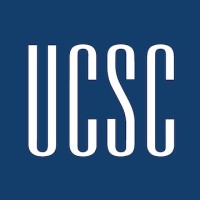Bachelor of Arts in Economics (Bachelors)
UC Santa Cruz
Santa Cruz, CA
Economics studies how individuals, firms, governments, and other organizations within our society make choices, and how these choices affect the society’s use of its available resources. Economists study a wide range of questions such as: How do individuals make decisions in the face of uncertainty? What are the causes of the Great Recession of 2009? Why do Europeans work fewer hours than Americans? Why have health care and education costs risen so much? What are the consequences of government deficits? Why has the gap between rich and poor in many countries risen? Why have some poor countries grown faster than many rich countries in recent years?
Economics majors study a substantive core of theory and mathematical and statistical methods that aid in addressing these questions. This required core can be combined with electives that emphasize specialized areas such as international economics, finance, public policy, applied microeconomics, law and economics, economic development, quantitative methods, macroeconomics, game theory and behavioral economics. A focus on core theory as well as mathematical and quantitative tools provides a foundation for graduate studies in economics. Selecting a range of electives to sample the broad domain of economics offers an excellent background for students who plan to enter careers in the private sector, in public service, the non-profit sector or to attend law school or other professional schools.
Mga Resulta ng Pagkatuto ng Programa
Program learning outcomes for economics, economics and mathematics, business management economics, and global economics majors:
✔ Critical Thinking Skills: Students are expected to be able to apply economic analysis to everyday problems in real world situations, to understand current events and evaluate specific policy proposals, and to evaluate the role played by assumptions in arguments that reach different conclusions to a specific economic or policy problem.
✔ Quantitative Reasoning Skills: Students are expected to understand how to use empirical evidence to evaluate the validity of an economic argument, use statistical methodology, interpret statistical results, and conduct appropriate statistical analysis of data.
✔ Problem-Solving Skills: Students are expected to be able to solve problems that have clear solutions and to address problems that do not have clear answers and explain conditions under which these solutions may be correct.
✔ Specialized Knowledge and Application of Skills: Students are expected to develop critical and quantitative thinking skills specific to business and accounting.
✔ Communication Skills: Students are expected to be able to communicate effectively in written, oral, and graphical form about specific issues, and to formulate well-organized written arguments that state assumptions and hypotheses supported by evidence.



















